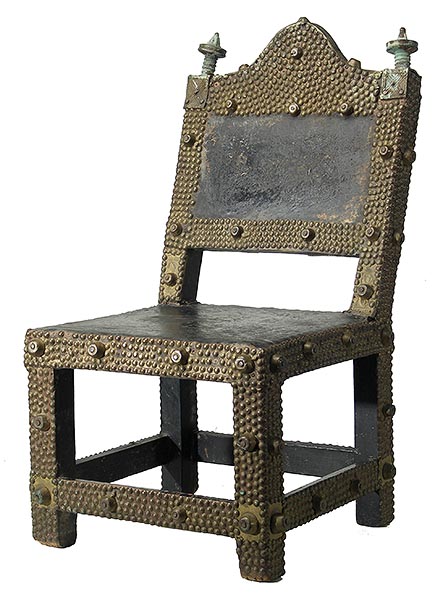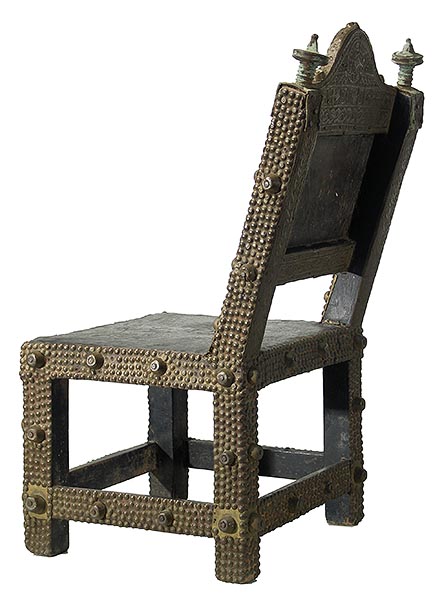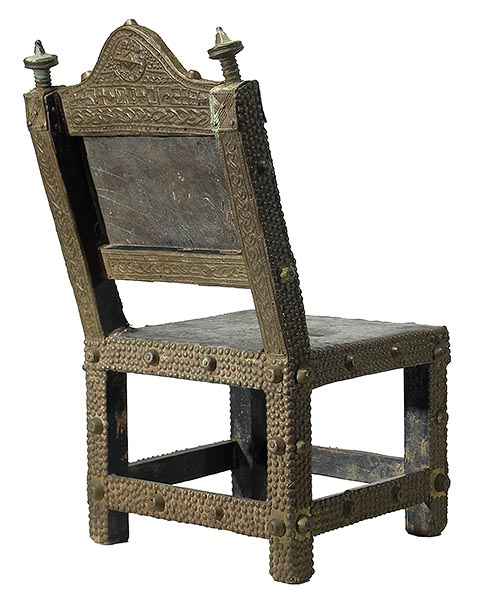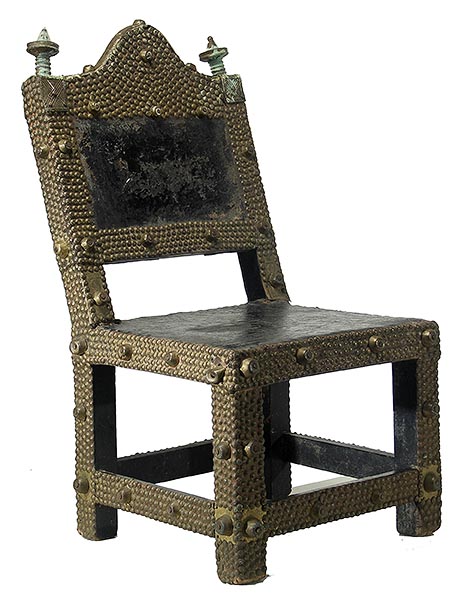







This chair has been vetted as authentic, dating from the 19th or early 20th Century.
This outatanding example is in excellent condition. The metal embellishments are complete and the leather seat and back are in fine shape.
Asipim chairs are often seen in Asante royal courts leaning against walls when not in use. Constructed simply out of wood with a hide seat they are patterned after 17th or 18th century English chairs known as "farthingale", "upholsterer's chair", or "embroiderers' chair". Through time they have become identified with Asante chieftaincy becoming symbols of social status and rank in which even minor chiefs will have a number of asipim chairs and more prominent chiefs will have many more. Reflecting Asante expectations of their rulers to be firm and authoritative, the chair takes its name, asipim "I stand firm". Asipim chairs will be decorated with brass tacks and caps, turned finials, worked brass sheets which are incised, worked in repousse' or stamped. The turned brass finials called ntuatire attached to the tops of the chairs represent abstracted claws of an eagle. These finials were made in Europe and traded in the region.
Dr. Daniel Mato
Professor Emeritus of Art History
The University of Calgary
Calgary, Alberta, Canada
TRIBE |
OBJECT |